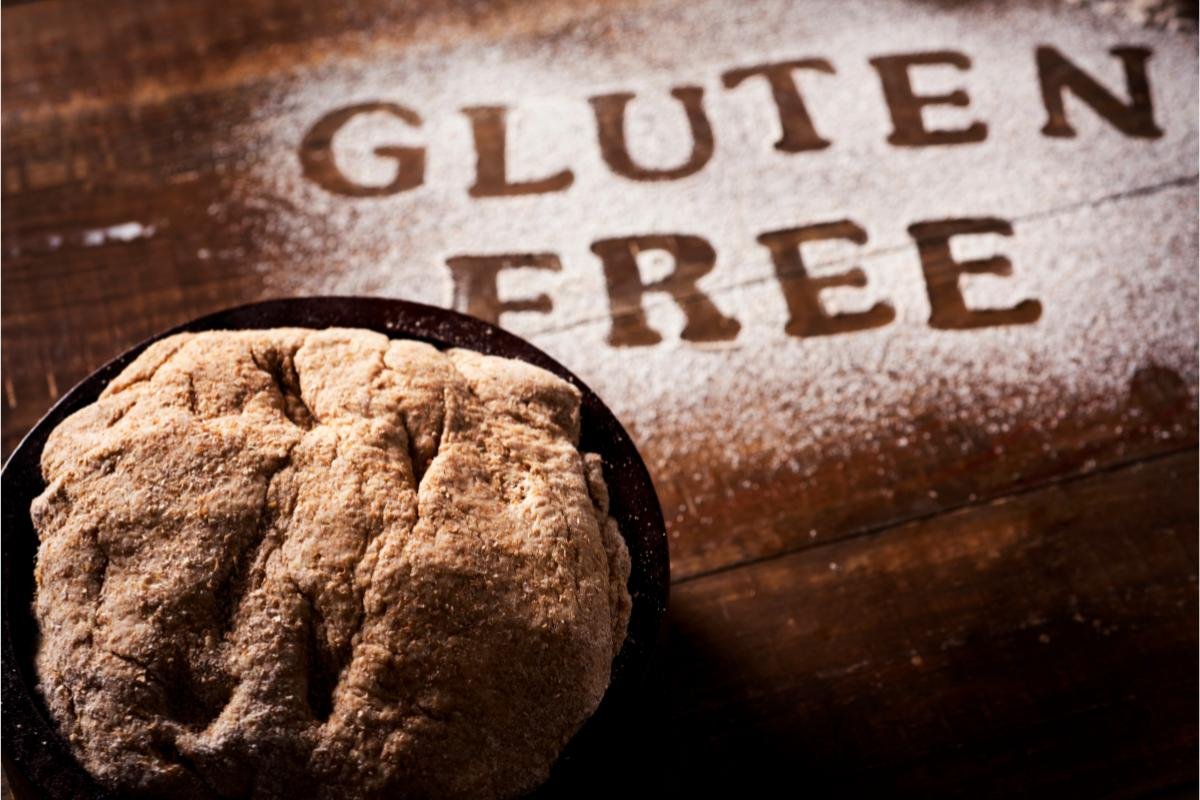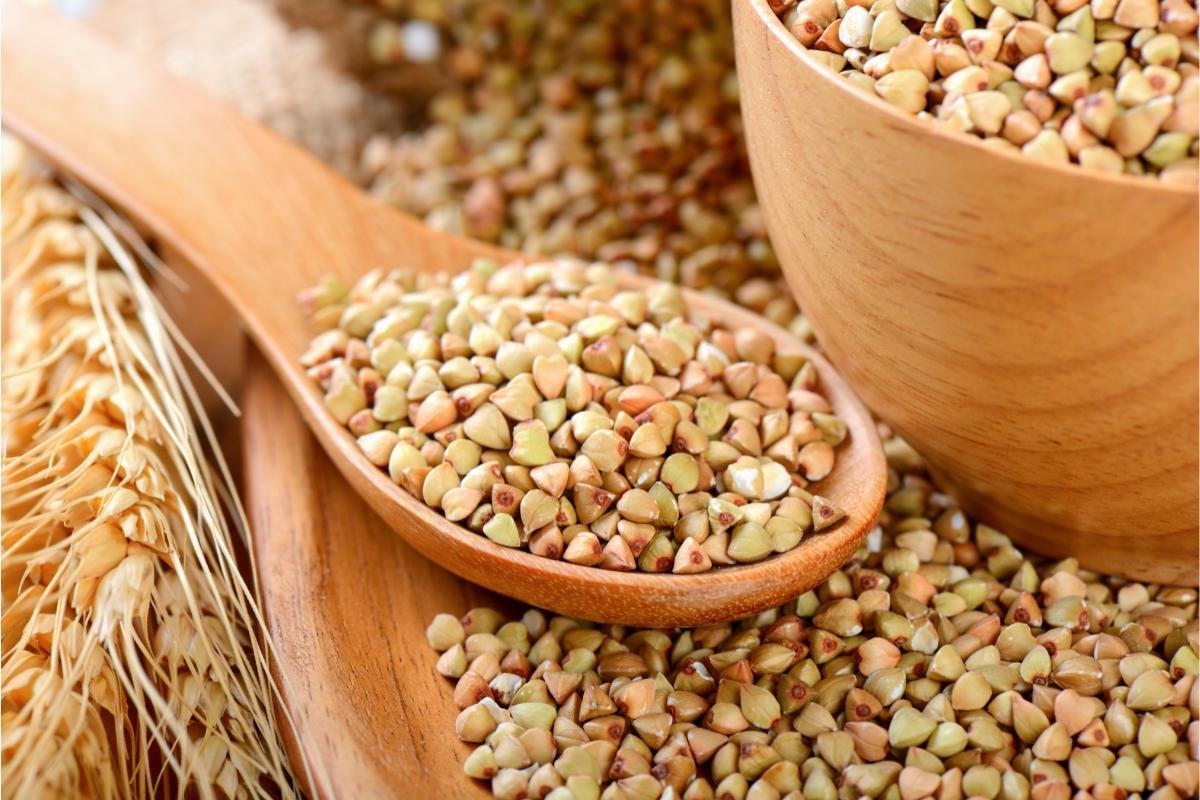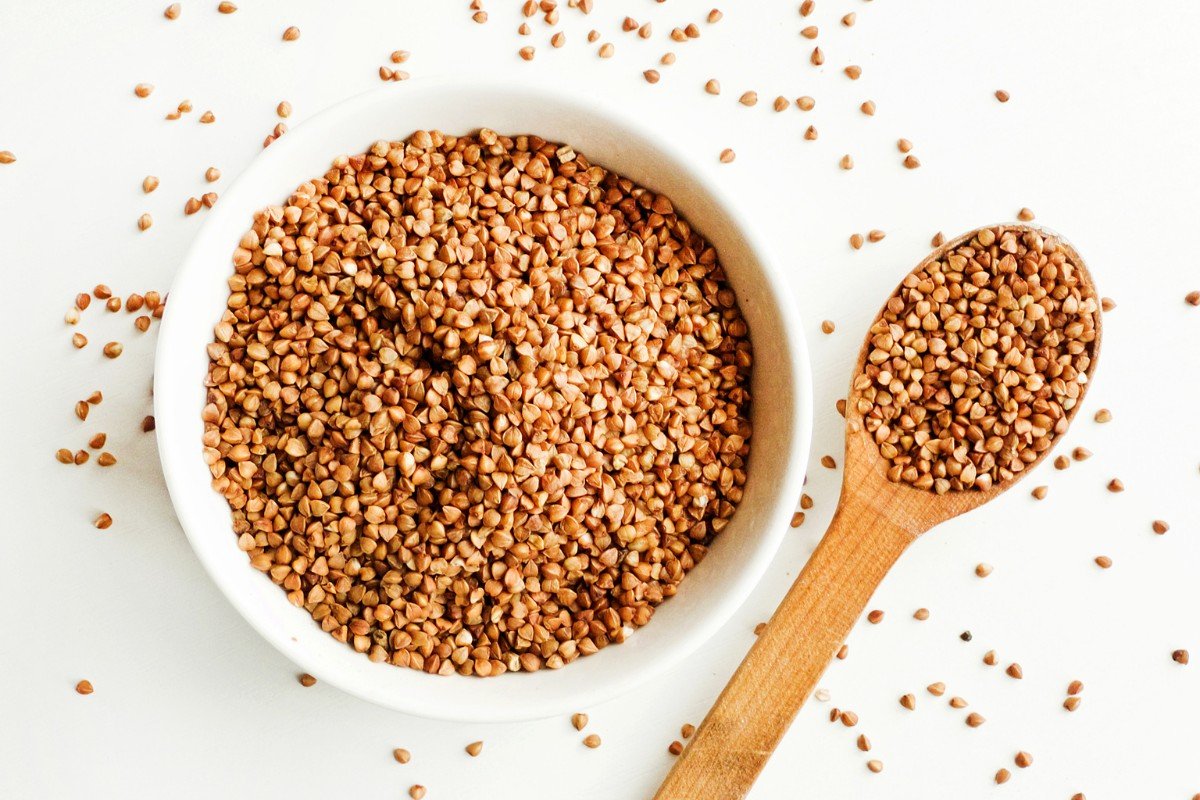In recent years, the spotlight on gluten-free diets has illuminated various foods, some heralded for their health benefits, while others are scrutinized for potential dietary pitfalls. Amidst this dietary shuffle, one grain—or more accurately, a pseudo-grain—stands out: buckwheat. Despite its name, buckwheat’s relationship with wheat is more nominal than nutritional. This distinction raises an important question for those navigating the complexities of gluten-free diets: Is buckwheat gluten-free?
As we delve into this topic, we aim to clarify misconceptions surrounding buckwheat, explore its nutritional profile, and assess its suitability for gluten-free diets. This exploration is not just academic but practical, offering valuable insights for anyone looking to diversify their diet while adhering to gluten-free restrictions. Whether you’re living with celiac disease, have a gluten sensitivity, or simply wish to explore healthier dietary options, understanding buckwheat’s place in your pantry can be a game-changer.
Understanding Gluten

In this foundational section, we’ll unravel the mysteries of gluten—what it is, its effects on certain individuals, and the significance of a gluten-free diet. This knowledge is crucial for anyone navigating the complexities of dietary restrictions due to gluten intolerance or celiac disease.
What is Gluten?
Gluten is a family of proteins found primarily in wheat, barley, and rye. It acts as a binding agent, giving bread and other baked goods their fluffy, chewy texture. While gluten is harmless for most people, it can cause health issues for those with gluten-related disorders.
Who Needs to Avoid Gluten and Why
- Celiac Disease: Individuals with this autoimmune disorder experience damage to their small intestine when consuming gluten. Avoiding gluten is essential to prevent symptoms and complications.
- Gluten Sensitivity: Some people may not have celiac disease but still react negatively to gluten, experiencing symptoms like bloating, headaches, and fatigue. A gluten-free diet helps alleviate these symptoms.
- Wheat Allergy: Those allergic to wheat need to avoid gluten-containing products to prevent allergic reactions, which can range from mild to severe.
The Importance of Gluten-Free Diets
A gluten-free diet is not a trend but a necessity for those affected by gluten-related disorders. It involves meticulously avoiding foods containing wheat, barley, and rye. Adhering to this diet can prevent symptom flare-ups, promote intestinal healing, and improve overall quality of life for those with gluten sensitivities or celiac disease.
What is Buckwheat?

Buckwheat, often misunderstood due to its misleading name, emerges as a nutritional powerhouse with a rich history and a myriad of health benefits. In this section, we’ll journey through the origins of buckwheat, examine its nutritional profile, and showcase its versatility in the culinary world. Let’s unravel the story of buckwheat, shedding light on why this pseudo-grain deserves a prime spot in your gluten-free diet.
The Rich History and Cultivation of Buckwheat
Buckwheat, scientifically known as Fagopyrum esculentum, is not a grain but a fruit seed related to rhubarb and sorrel, making it a fantastic wheat alternative for those on a gluten-free diet. It has been cultivated for over 5,000 years in Asia, and later, it spread to Europe and North America, adapting well to a range of climates. This resilience and ease of cultivation have made buckwheat a staple in various cuisines around the globe, celebrated for its nutritional benefits and earthy, robust flavor.
Nutritional Powerhouse Unveiled
Diving into the nutritional aspects of buckwheat, it’s clear why this seed garners such acclaim. Buckwheat is a rich source of high-quality plant protein, containing all nine essential amino acids, making it an excellent dietary choice for vegetarians and vegans. It’s also loaded with dietary fiber, which promotes digestive health, and an array of vitamins and minerals, including magnesium, potassium, phosphorus, niacin, and B-vitamins. Buckwheat’s antioxidant content, particularly rutin, contributes to its health-boosting properties, aiding in reducing inflammation and blood pressure.
Culinary Versatility of Buckwheat
Buckwheat flourishes not only in fields but also in kitchens worldwide, thanks to its culinary versatility. It’s the star ingredient in traditional dishes such as Russian blinis, Japanese soba noodles, and French galettes. Its seeds, known as groats, can be cooked similarly to rice or quinoa, serving as a nutritious base for salads, pilafs, and porridges. Buckwheat flour, another popular derivative, is used in baking, offering a gluten-free alternative for bread, pancakes, and pastries. Its unique, slightly nutty flavor enriches every dish, making it a favored ingredient among chefs and home cooks seeking to add depth and nutrition to their gluten-free creations.
Debunking the Myth – Is Buckwheat Gluten-Free?
In this pivotal section, we dispel common myths surrounding buckwheat, especially regarding its gluten content. Understanding buckwheat’s gluten status is crucial for anyone with gluten sensitivities, allergies, or celiac disease. We’ll explore the nature of buckwheat, provide scientific evidence of its gluten-free status, and address the issue of cross-contamination, offering guidance on how to safely incorporate buckwheat into a gluten-free diet.
Buckwheat’s Misleading Name: A Closer Look
Despite what its name might suggest, buckwheat bears no relation to wheat. In fact, buckwheat is not a grain at all but a seed from a plant related to green leafy vegetables like rhubarb. The confusion often arises from its name, which misleadingly includes “wheat,” leading some to mistakenly assume it contains gluten. However, buckwheat is completely gluten-free by nature, making it a safe and nutritious option for those avoiding gluten.
Scientific Evidence: Buckwheat’s Gluten-Free Status
Numerous studies have confirmed that buckwheat is inherently gluten-free. Research analyzing the protein composition of buckwheat has found it lacks gliadin and glutenin, the two proteins that combine to form gluten in wheat, barley, and rye. This absence of gluten proteins makes buckwheat an excellent dietary choice for individuals with celiac disease or gluten sensitivity, offering a rich source of nutrients without the risk of gluten exposure.
Navigating Cross-Contamination Risks
While buckwheat itself is gluten-free, cross-contamination can occur during processing, packaging, or even farming, posing a risk for those with gluten-related disorders. Cross-contamination may happen when buckwheat is processed on the same equipment as gluten-containing grains or when it is grown in proximity to these grains, allowing gluten particles to mix.
To safely enjoy buckwheat as part of a gluten-free diet, look for products labeled as “certified gluten-free.” These products have undergone rigorous testing to ensure they meet strict gluten-free standards, significantly reducing the risk of cross-contamination. Additionally, purchasing whole buckwheat groats and processing them at home can further minimize the risk, allowing you to enjoy the health benefits of buckwheat without the worry of gluten exposure.
Health Benefits of Buckwheat
Buckwheat, beyond being a safe gluten-free option, is a nutritional treasure trove offering a plethora of health benefits. In this section, we delve into the myriad ways buckwheat contributes to overall health, reinforcing its value in a balanced diet. From supporting heart health to managing diabetes, buckwheat’s benefits are wide-ranging and impressive.
Supports Heart Health
Buckwheat is a heart-friendly food, rich in flavonoids, particularly rutin, which strengthens blood vessels and improves circulation. Its high fiber content also plays a crucial role in lowering bad LDL cholesterol levels, thereby reducing the risk of heart disease. Including buckwheat in your diet can lead to improved blood pressure levels and a healthier cardiovascular system overall.
Regulates Blood Sugar Levels
For individuals managing diabetes or looking to maintain stable blood sugar levels, buckwheat is an excellent dietary choice. Its low glycemic index means that it slowly releases glucose into the bloodstream, preventing sudden spikes in blood sugar. Furthermore, the fiber in buckwheat helps regulate blood sugar levels, making it a valuable food for diabetes management and prevention.
Aids in Digestive Health
The high dietary fiber content in buckwheat not only benefits heart health and blood sugar regulation but also promotes digestive health. Fiber aids in maintaining regular bowel movements and prevents constipation. It also serves as a prebiotic, feeding the beneficial bacteria in the gut and supporting overall gut health. Regular consumption of buckwheat can contribute to a well-functioning digestive system.
Anti-inflammatory and Antioxidant Properties
Buckwheat’s nutritional profile includes a range of antioxidants, such as rutin, quercetin, and vitamin E, which combat oxidative stress and reduce inflammation in the body. These anti-inflammatory and antioxidant properties may help in the prevention of chronic diseases, such as arthritis, cancer, and heart disease, by neutralizing harmful free radicals and reducing inflammation.
Weight Management
Incorporating buckwheat into a diet can also assist in weight management. Its high fiber content contributes to a feeling of fullness, helping to curb appetite and prevent overeating. Additionally, the protein in buckwheat can increase metabolism, aiding in weight loss or maintenance. Buckwheat is a nutritious, satisfying food that can be a valuable part of a weight management plan.
Tips for Incorporating Buckwheat into Your Diet
To reap the health benefits of buckwheat, consider incorporating it into your meals in various ways:
- Use buckwheat flour in baking for gluten-free bread, pancakes, and muffins.
- Cook whole buckwheat groats as a side dish or add them to soups and salads for extra texture and nutrition.
- Experiment with buckwheat noodles in Asian-inspired dishes for a healthy, gluten-free option.
FAQ: Buckwheat and Gluten-Free Diets
Is buckwheat gluten-free?
Yes, buckwheat is naturally gluten-free. Despite its name, it is not related to wheat and is safe for those with celiac disease or gluten sensitivities.
Can buckwheat be included in a gluten-free diet?
Absolutely. Buckwheat is a nutritious option for those on a gluten-free diet, offering a variety of vitamins, minerals, and dietary fibers without any gluten.
How can I ensure buckwheat products are free from cross-contamination?
Look for products labeled as “certified gluten-free.” These have undergone strict testing procedures to ensure they meet gluten-free standards and are safe from cross-contamination.
What are some health benefits of eating buckwheat?
Buckwheat is beneficial for heart health, helps regulate blood sugar levels, supports digestive health, has anti-inflammatory and antioxidant properties, and can aid in weight management.
How can I incorporate buckwheat into my diet?
Buckwheat can be used in a variety of dishes, including as a rice or quinoa substitute, in baked goods using buckwheat flour, and as noodles in Asian-inspired dishes.
Is buckwheat safe for everyone?
While buckwheat is safe for most people, including those with gluten intolerance, it’s always a good idea to introduce new foods gradually and consult with a healthcare provider if you have specific dietary concerns or food allergies.
Does buckwheat taste like wheat?
No, buckwheat has its own unique, slightly nutty flavor. It does not taste like wheat and offers a flavorful alternative to traditional gluten-containing grains.
Can buckwheat help with weight loss?
Yes, the high fiber content in buckwheat helps promote feelings of fullness, which can aid in weight management. However, it should be part of a balanced diet and healthy lifestyle for effective weight loss.
Are there different types of buckwheat?
Yes, there are several forms of buckwheat, including whole groats, cracked groats, and flour. Each form can be used in different recipes, depending on the texture and taste desired.
How do I store buckwheat?
Store buckwheat in a cool, dry place. Whole groats can be kept in an airtight container for several months, while buckwheat flour should be stored in the refrigerator to maintain freshness.
Conclusion
In exploring the intricacies of buckwheat and its place within a gluten-free diet, we’ve unveiled its numerous health benefits, culinary versatility, and, most importantly, its safety for those with gluten sensitivities or celiac disease. Buckwheat stands as a testament to the richness that gluten-free foods can offer, both in nutrients and flavor.
As we conclude this comprehensive journey into the world of buckwheat, it’s clear that this pseudo-grain is more than just a dietary substitute; it’s a staple with the power to enhance our overall health and culinary experiences. Whether you’re looking to diversify your gluten-free diet, manage health conditions, or simply explore new and nutritious foods, buckwheat offers a world of possibilities.
For those eager to start incorporating buckwheat into their meals, our website RecipesZap offers a variety of creative and delicious buckwheat recipes. From savory dishes to sweet treats, you’ll find inspiration to make your meals both nutritious and exciting.
Furthermore, for additional information and resources on gluten-free diets, the Celiac Disease Foundation provides extensive guidance, research, and support for individuals navigating gluten-related disorders.
Embracing buckwheat is not just about adapting to a gluten-free lifestyle; it’s about enriching your diet with foods that offer profound health benefits and delightful flavors. Explore, experiment, and enjoy the diverse world of buckwheat cuisine.

